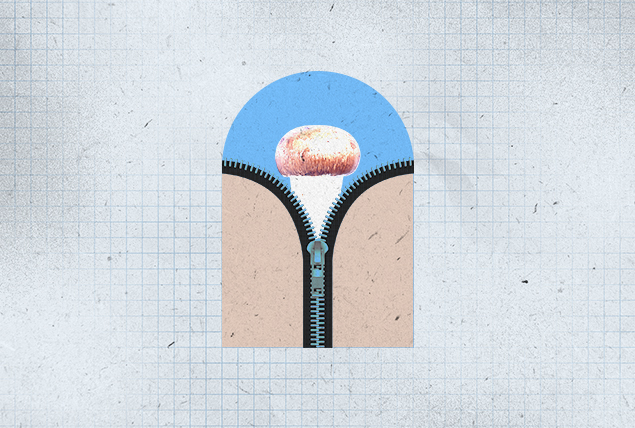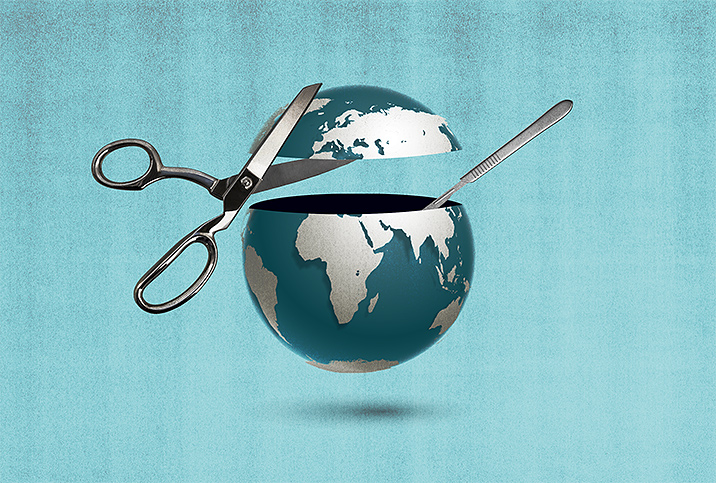Study Suggests Circumcision Can Protect Men from Getting HPV

Human papillomavirus (HPV) infections pose a significant public health concern worldwide, given their association with various cancers and other debilitating diseases.
HPV is a common sexually transmitted infection (STI) that may affect people of all genders, according to Amy Pearlman, M.D., a urologist and co-founder of Prime Institute in Fort Lauderdale, Florida. It encompasses a wide range of virus strains, some of which can lead to genital warts and an increased risk of developing various cancers, including cervical, anal, penile and head/neck cancer.
"Practicing safe sex, getting vaccinated, and regular screenings can help in preventing and managing HPV-related conditions," she added.
Scientists have extensively researched the risk factors and preventive measures for HPV transmission. In this pursuit, a recent study published in April 2023 shed new light on the potential impact of circumcision on HPV infection rates among men and the women they have sex with.
Studying circumcision and men getting HPV
Circumcision is a procedure that involves removing the foreskin, the fold of skin that covers the head of the penis.
"It is often performed as a cultural, religious and/or medical practice in men of all ages," Pearlman said.
This specific study aimed to analyze the available evidence regarding the relationship between circumcision and HPV infections in both males and females.
"Understanding methods of infection reduction are important, given that HPV is the most common STI worldwide," Pearlman said.
'Regardless of circumcision status, people should still be practicing safe sex habits, such as wearing condoms.'
Samantha Shapiro, M.Sc., Ph.D., a member of the department of epidemiology, biostatistics and occupational health at McGill University in Montreal, is the study's lead author.
"The mechanism isn't entirely clear. But it's been suggested that the removal of the foreskin leads to anatomical and physiological differences between the circumcised and uncircumcised penis that may lead to different susceptibility to HPV infection," she said.
If circumcised men are less likely to acquire HPV or are more likely to clear an HPV infection, then the woman they have sex with may, in turn, be less likely to acquire an HPV infection from that partner.
What's the story on men, circumcision and HPV?
The study synthesized the results of the existing literature on the association between circumcision and HPV infections in men and the women they have sex with, Shapiro said.
The research team looked at how likely circumcised versus uncircumcised men were to:
- Have an HPV infection at a given point in time (prevalence)
- Acquire a new HPV infection (incidence)
- Clear (have their body get rid of) an existing HPV infection
The study looked at the same outcomes in women who had sex with circumcised versus uncircumcised men. The results found that men who were circumcised were less likely to have an infection at a given point in time. In addition, they were less likely to acquire a new HPV infection and more likely to clear an existing one—only, however, if that infection was located at the glans (tip) of the penis.
The research also suggested women who have sex with circumcised men might be less likely to have an infection and to acquire a new infection.
Shapiro noted the results were consistent in showing that circumcision is associated with a decrease in the risk of HPV infections at the glans penis in males. Circumcised men were about 30 percent less likely to have or acquire an infection, and 40 percent to 80 percent more likely to clear it.
The evidence was less strong at the shaft of the penis, however.
"Evidence in women was also less clear due to fewer studies of this association in women," she added.
What does the study mean for you?
Pearlman explained that circumcision may reduce STI risk for several reasons.
"By removing the foreskin, there is less surface area that can harbor and transmit certain STIs, and without the foreskin, maintaining proper genital hygiene can be easier," she said.
The study suggests that male circumcision may reduce HPV infections in men and their female partners, in addition to other methods, such as barrier protection and vaccination.
The study showed protection was conferred mostly at the glans, meaning that circumcised men are still vulnerable to infections of the skin of the shaft of the penis, Shapiro said.
Using condoms is just one of several ways to reduce transmission of STIs, including HPV, Pearlman noted. No single method can provide complete protection against STI spread, though. So understanding all the options and tools available to minimize the risk can help people make informed health decisions related to genital procedures and sexual practices.
The results of this study can be used when weighing the costs and benefits of circumcision.
"Regardless of circumcision status, people should still be practicing safe sex habits, such as wearing condoms. Getting vaccinated against HPV remains the best way to protect yourself against HPV infection," Shapiro said.


















